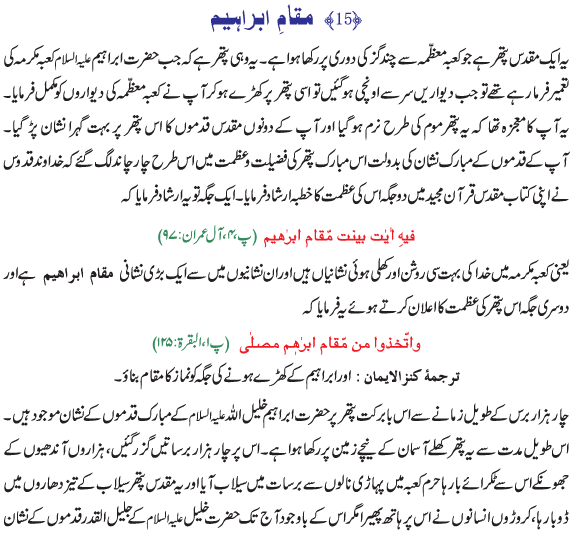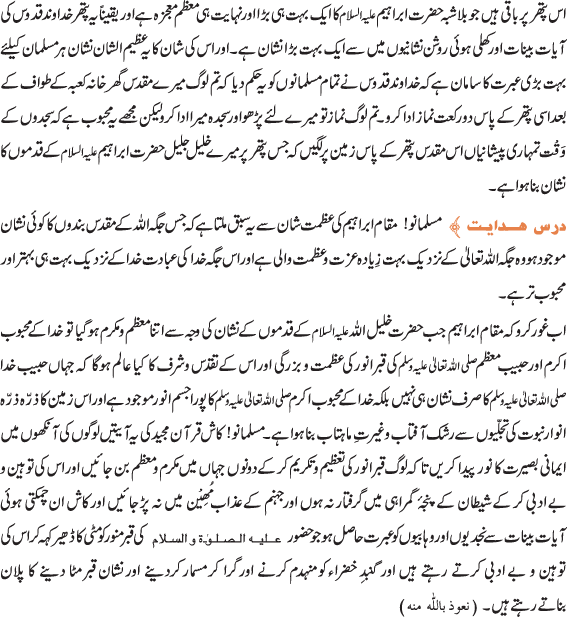[Allah’s Quran – 34:49] “Say: ‘The Truth has arrived, and Falsehood neither creates anything new, nor restores anything.”
[Bukhari, Book #60, Hadith#244] “Narrated Abdullah bin Masud: Allah’s Apostle entered Mecca (in the year of the Conquest) and there were three-hundred and sixty idols around the Ka’ba. He then started hitting them with a stick in his hand and said: ‘truth (i.e., Islam) has come and falsehood (disbelief) vanished. Truly, falsehood (disbelief) is ever bound to vanish.’ (17.81) ‘truth has come and falsehood (Iblis) can not create anything.”
[Muslim, Book #019, Hadith #4397] “It has been narrated by Ibn Abdullah who said: The Holy Prophet (may peace be upon him) entered Mecca. There were three hundred and sixty idols around the Ka’ba. He began to thrust them with the stick that was in his hand, saying:” truth has come and falsehood has vanished. Lo! falsehood was destined to vanish” (xvii. 81). truth has arrived, and falsehood can neither create anything from the beginning nor can it restore to life”
[Tafsir] “(Say: “The truth has come, and the falsehood can neither create anything nor resurrect.”) Means, truth and the great Law have come from Allah, and falsehood has gone and has perished and vanished. This is like the Ayah: (Nay, We fling the truth against the falsehood, so it destroys it, and behold, it is vanished) (21:18). When the Messenger of Allah entered Al-Masjid Al-Haram on the day of the conquest of Makkah, and found those idols standing around the Ka`bah, he started to hit the idols with his bow, reciting, (And say: “The truth has come, and the falsehood has vanished. Surely, the falsehood is ever bound to vanish.”) (17:81), and: (Say: “The truth has come, and the falsehood can neither create anything nor resurrect.”) This was recorded by Al-Bukhari, Muslim, At-Tirmidhi and An-Nasa’i.
“The fourth argument is that the Truth is final: it does not come and go: it creates new situations and new developments, and if by chance it seems to be defeated for a time, it comes back and restores the true balance-unlike Falsehood, which by its very nature is doomed to perish: 17:81. The Prophet’s credentials are known by the test of Time. This was already becoming apparent to discerning eyes when this Sura was revealed in Mecca, but it became clear to the whole world with the story of Islam’s progress in Madina.”
“I.e., in contrast to the creativeness inherent in every true idea, falsehood – being in itself an illusion – cannot really create anything or revive any values that may have been alive in the past.”






